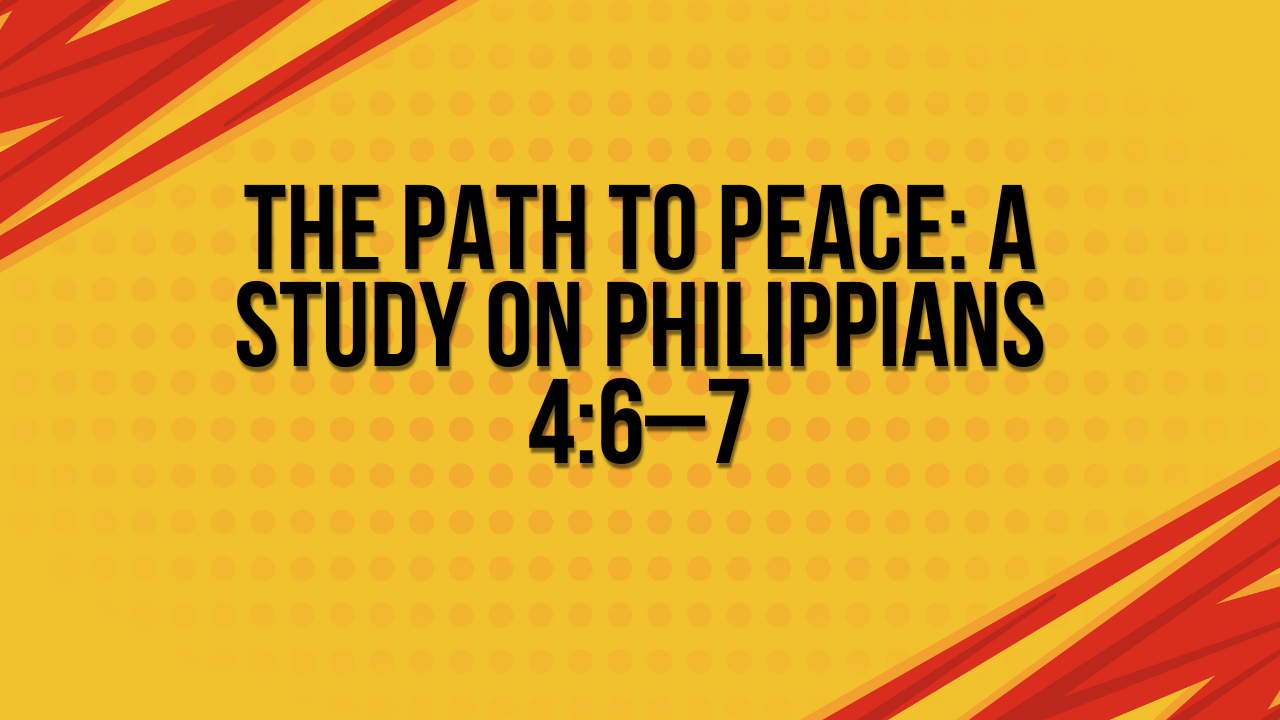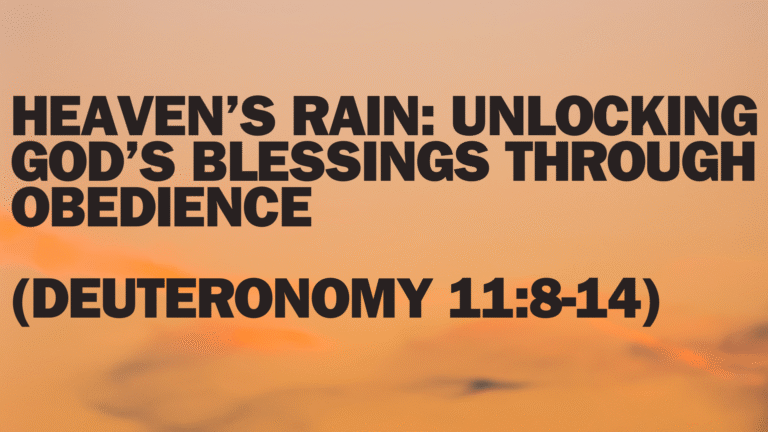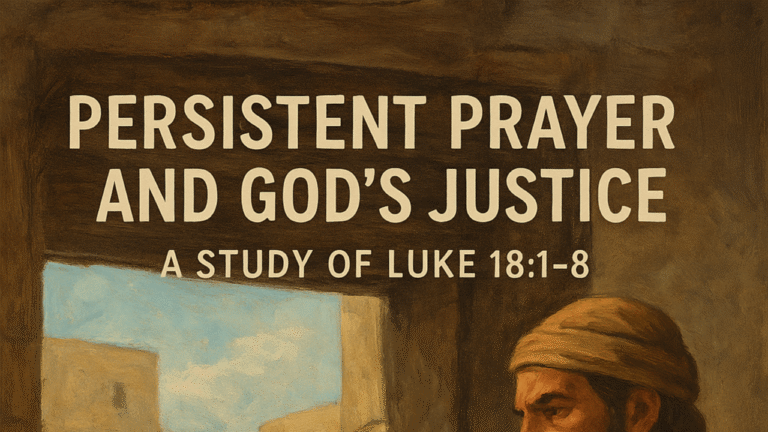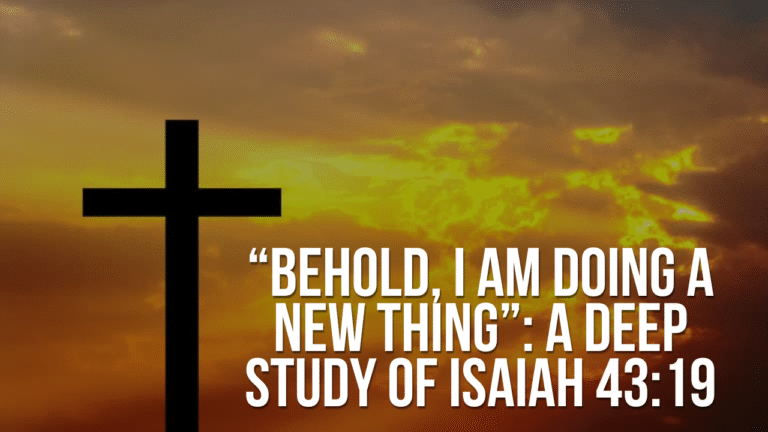The Path to Peace: A Study on Philippians 4:6–7
Introduction
Every human heart longs for peace. In a world marked by anxiety, pressure, and uncertainty, peace often feels like a distant dream. Yet in Philippians 4:6–7, Paul offers a radical promise: peace that surpasses understanding is available to all who turn to God in prayer. These verses are not a suggestion but a divine invitation—an antidote to worry and a pathway to wholeness.
This article will explore Philippians 4:6–7 in depth, examining its context, meaning, and practical implications for daily life. Through this passage, we discover that God’s peace is not dependent on circumstances but rooted in His presence.
The Passage (NLT)
“Don’t worry about anything; instead, pray about everything. Tell God what you need, and thank him for all he has done. Then you will experience God’s peace, which exceeds anything we can understand. His peace will guard your hearts and minds as you live in Christ Jesus.” (Philippians 4:6–7, NLT)
Context of Philippians
1. Paul’s Circumstances
Paul wrote the letter to the Philippians while in prison, facing uncertainty and possible execution. Despite his difficult situation, his letter radiates joy, encouragement, and confidence in Christ.
2. The Theme of Joy and Contentment
Philippians is often called the “Epistle of Joy.” Paul repeatedly reminds believers to rejoice, even in hardship (Philippians 4:4). This joy is not naïve optimism but a deep confidence in God’s sovereignty.
3. Why Peace Matters in Philippians
The Philippians lived in a Roman colony where allegiance to Caesar was expected. Christians faced pressure, opposition, and persecution. Anxiety was natural—but Paul points them to prayer as the source of peace that Rome or circumstances could never provide.
Breaking Down the Passage
1. “Don’t worry about anything”
The Greek word for “worry” (merimnao) means to be pulled in different directions, to be divided or distracted. Worry fractures the heart, leading to restlessness and fear. Paul is not saying, “Never care about anything,” but “Don’t be consumed or controlled by anxiety.”
2. “Instead, pray about everything”
Prayer is the antidote to worry. Paul presents prayer as a lifestyle, not a last resort. Everything—from small daily needs to overwhelming challenges—belongs before God.
3. “Tell God what you need”
This points to supplication—bringing our requests honestly before God. He desires our transparency and dependence.
4. “And thank him for all he has done”
Gratitude transforms prayer. When we thank God, we shift our focus from problems to His faithfulness. Gratitude strengthens trust and silences fear.
5. “Then you will experience God’s peace”
Peace (eirene in Greek, corresponding to shalom in Hebrew) is more than the absence of conflict—it is wholeness, harmony, and inner rest that only God can give.
6. “Which exceeds anything we can understand”
God’s peace goes beyond human comprehension. It is supernatural—present even in suffering, loss, or uncertainty.
7. “His peace will guard your hearts and minds”
The word “guard” is a military term, describing soldiers standing watch. God’s peace acts as a protective barrier around our hearts (emotions) and minds (thoughts).
8. “As you live in Christ Jesus”
The promise is rooted in relationship with Christ. Peace is not a technique but the fruit of abiding in Him.
Lessons from Philippians 4:6–7
1. Worry is a thief of peace.
When worry takes root, it steals joy, focus, and trust in God.
2. Prayer is the pathway to peace.
By turning anxieties into prayers, we release burdens into God’s hands.
3. Gratitude is essential.
Thanksgiving anchors us in God’s past faithfulness, fueling hope for the future.
4. God’s peace is supernatural.
It does not depend on circumstances but on God’s presence.
5. Peace protects us.
Like a guard at the city gate, God’s peace defends our inner life from fear and despair.
Biblical Examples
1. Jesus in Gethsemane (Luke 22:39–46)
Jesus, facing the cross, prayed earnestly and submitted to God’s will. Through prayer, He found strength and peace to endure the trial.
2. Hannah’s Prayer (1 Samuel 1)
Hannah, burdened with sorrow, poured out her heart to God in prayer. Afterward, her face was no longer downcast—she experienced peace before her circumstances changed.
3. Paul and Silas in Prison (Acts 16:25–26)
Instead of worrying, they prayed and sang hymns at midnight in prison. Their peace in God led to a powerful witness and a miraculous deliverance.
Modern Applications
1. Replacing Worry with Prayer
When anxiety rises about finances, health, or the future, use it as a signal to pray. Turn every worry into a prayer point.
2. Practicing Gratitude Daily
Keep a gratitude journal—write three things you’re thankful for each day. Gratitude shifts focus from fear to faith.
3. Guarding Mental Health with God’s Peace
In an age of stress and mental health struggles, Philippians 4:6–7 reminds us that peace is possible—not by ignoring problems but by entrusting them to God.
4. Responding to Crises with Faith
When bad news comes, instead of panicking, pause and pray. Invite God’s peace to guard your heart and mind.
5. Sharing God’s Peace with Others
As believers, we can be agents of peace in a worried world—offering encouragement, prayer, and the hope of Christ.
Practical Steps to Experience God’s Peace
-
Pause and Breathe – When anxiety hits, stop and take a deep breath.
-
Pray Honestly – Share your fears and needs with God openly.
-
Give Thanks – Recall His past goodness and thank Him in advance for His answers.
-
Release Control – Leave the outcome in His hands.
-
Abide in Christ – Stay connected through Scripture, worship, and fellowship.
Testimonies of Peace
-
Corrie Ten Boom survived the horrors of WWII concentration camps, yet testified, “There is no pit so deep that God’s love is not deeper still.” Her peace came from trust in Christ.
-
Missionaries under persecution have reported a calm joy and assurance even in danger, showing that God’s peace transcends fear of death.
-
Everyday believers—from parents worried about children to workers anxious about jobs—share how praying instead of worrying has brought unexplainable peace.
Contrast: Worldly Peace vs. God’s Peace
-
Worldly Peace depends on circumstances, avoidance of problems, or temporary escapes (entertainment, substances, distractions).
-
God’s Peace exists even in storms, rooted in His presence, promises, and power.
Jesus said, “I am leaving you with a gift—peace of mind and heart. And the peace I give is a gift the world cannot give. So don’t be troubled or afraid.” (John 14:27 NLT).
The Role of the Holy Spirit
The Holy Spirit plays a vital role in experiencing peace:
-
He comforts us (John 14:16).
-
He intercedes for us when words fail (Romans 8:26).
-
He produces peace as fruit in our lives (Galatians 5:22).
Living Out Philippians 4:6–7 Daily
-
Morning Prayer – Start the day by surrendering worries.
-
Midday Gratitude – Pause to thank God for small blessings.
-
Evening Reflection – Review the day, give thanks, and entrust tomorrow to Him.
When practiced consistently, this rhythm cultivates peace in daily life.
Conclusion
Philippians 4:6–7 presents a divine exchange: trade worry for prayer, and receive peace in return. This peace is not fragile or temporary but supernatural, guarding hearts and minds in Christ.
For Paul, peace was not theoretical—he lived it while chained in prison. For us, peace is not out of reach—it is God’s gift through prayer and thanksgiving.
The call is clear: don’t worry about anything, pray about everything, and thank God in all things. Then His peace—beyond human understanding—will guard us and sustain us.
In a restless world, this promise is not only comforting but life-changing. The path to peace is open to all who walk with Christ.
Devotional based on Philippians 4:6–7 (NLT)
Life is full of worries, but God gives us a better way. In Philippians 4:6–7, Paul reminds us not to be consumed by anxiety but to bring every concern to God in prayer. When we pray with thanksgiving—remembering all that God has done—we shift our focus from fear to faith. The result is not just relief but a supernatural peace that surpasses understanding. This peace becomes a guard over our hearts and minds, steadying us no matter what we face. In Christ, true peace is possible even in life’s storms.







